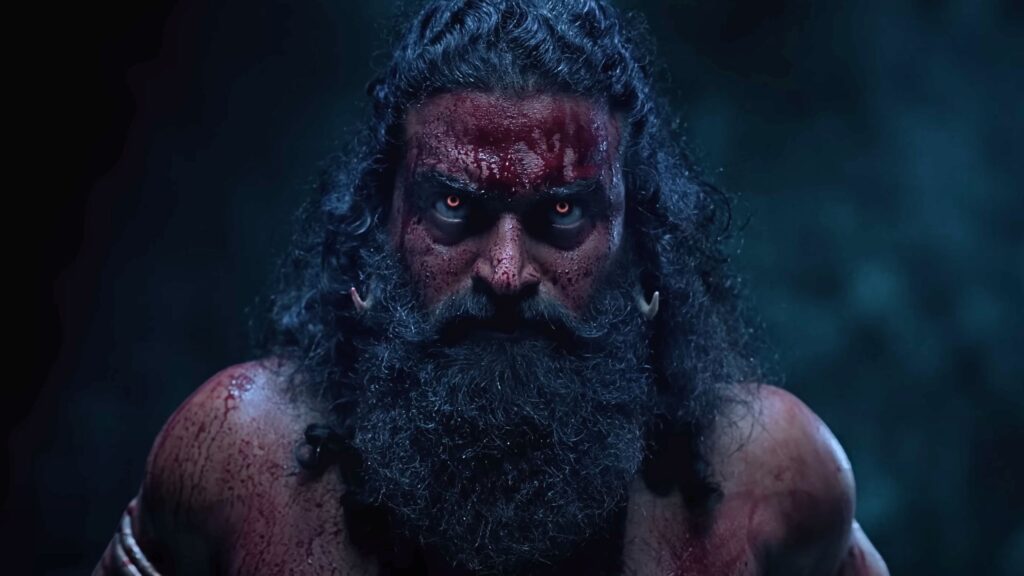Title – Kantara Chapter 1, Producer – Hombale Films, Vijay Kiragandur, Director – Rishab Shetty, Music – B. Ajanish Lokanath, Cinematography – Aravind S. Kashyap, Cast – Rishab Shetty, Rukmini Vasanth, Gulshan Devaiah, Jayaram Subramanian, Bala Rajawadi, Deepak Rai Panaje, Naveen Padeel, Prakash Tumminadu, Dingri Naresh, P.D. Satish, Achyuth Kumar, Rakesh Pujari, and others.
The magnum opus from Hombale Films and Vijay Kiragandur, with Rishab Shetty at the helm of direction and acting, has delivered a mammoth and magnificent film – Kantara Chapter 1. This is a must-watch film that elevates Indian cinema to a global level. It is, without a doubt, a Country Delight.
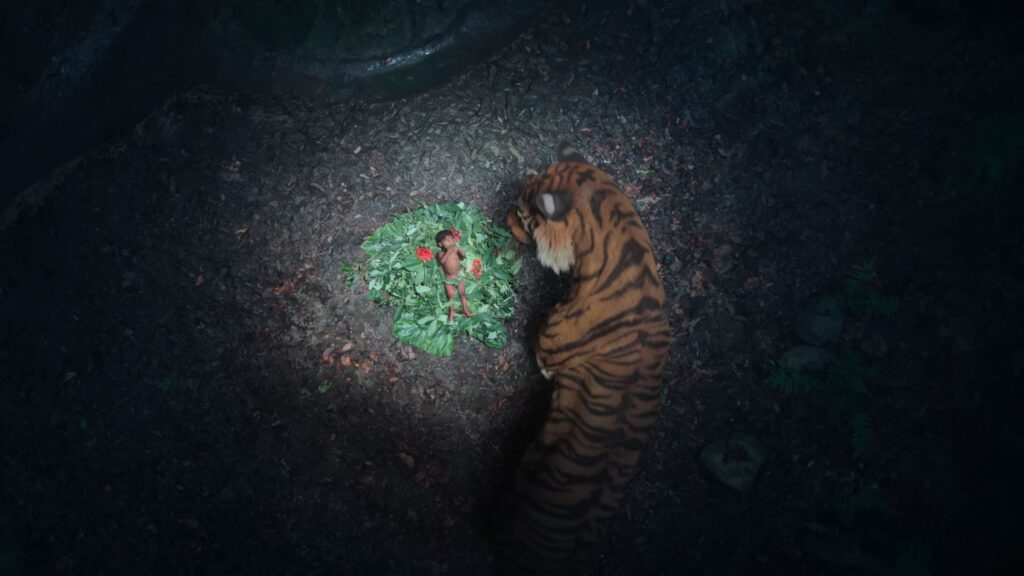
Every letter of KANTARA stands for something commendable:
K – Knowledgeable
A – Amazing
N – Never Before
T – Topnotch
A – Approach and Attitude
R – Responsible
A – Astonishing
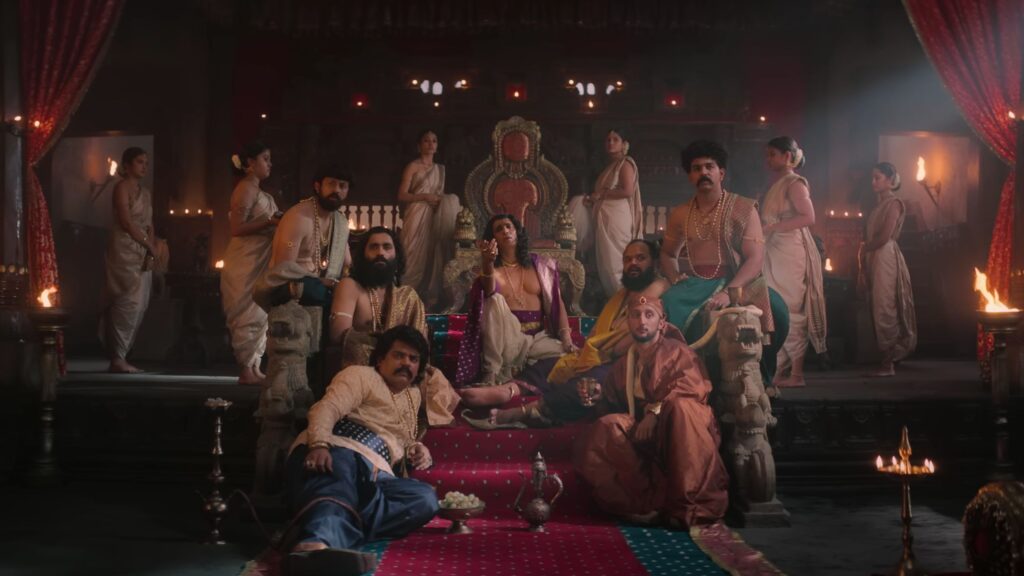
Watching Kantara Chapter 1 is truly a celluloid celebration for audiences across the globe. In terms of making, presentation, effort, investment, performances, and technical excellence – this film has set a new trend. With Kantara 2 already announced, it’s an uphill challenge for Rishab Shetty and his team to surpass this benchmark. When Kantara was released in 2022, it started off quietly but soon gained global acclaim, earning praise and massive profits for Hombale Films.
Kantara Chapter 1 surpasses the original in every aspect. The themes of God vs evil, the pursuit of Shivana Hoodota (Lord Shiva’s garden), are lavishly and extensively narrated in 168 minutes, with a UA certificate and only two cuts from the regional censor board. Over three years, Rishab Shetty and his team have crafted every shot and line with precision. While the first half itself is a paisa vasool, the second half delivers twice the intensity and impact.
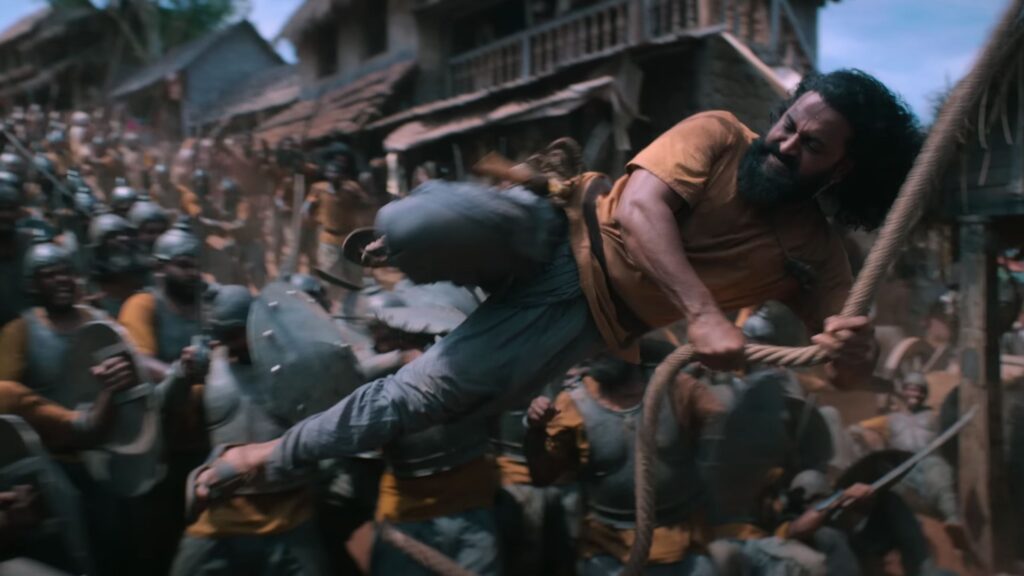
Consider the vast range of topics Rishab Shetty explores in Kantara Chapter 1 – slavery, empires, the Kadamba dynasty, Brahma Rakshasa, Kantara as a divine place, animals like the tiger, boar, buffalo, monkey, the Ullaya effect, Karnika Daiva and Devathes, Lord Shiva relevance, the barter system, the innocence and struggle of villagers – all interwoven into the screenplay with astounding style, keeping audiences enthralled.
The villagers of Kantara are portrayed as tough and divinely protected, while the neighboring regions constantly create trouble in this Dantha Kathe. A team led by Berme (Rishab Shetty) travels to Bangra and discovers that King Vijayendra (Jayaram Subramanian), along with his son Kulashekhara (Gulshan Devaiah) and daughter Kanakavathi (Rukmini Vasanth), are conducting business and profiting from the crops grown by the Kantara people.
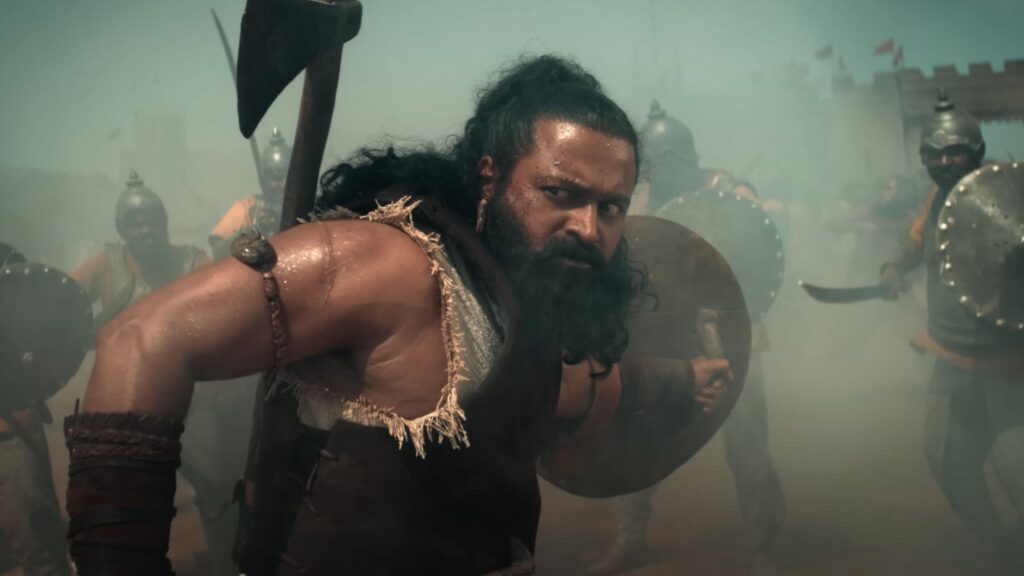
This becomes the trigger for Berme’s rebellious stance. They aim to trade independently at the port, but success is not easy. Though King Vijayendra initially avoids conflict, it is Kulashekhara who initiates chaos and even pays the price for it. The impending danger intensifies as the father-daughter duo hatch a ruthless plan. What is that plan? How is it executed? How do the Kantara people, led by Rishab Shetty and aided by divine forces, retaliate? The remaining portions of Kantara Chapter 1 unfold this gripping narrative.
As a director, Rishab Shetty has reached great heights and is worthy of accolades at the state, national, and international levels for his dexterity. His ability to challenge himself and still deliver a convincing cinematic experience is monumental. As an actor, Rishab Shetty stands as a powerhouse of Karnataka. His performance is robust, full of resistance, and simply awesome. The dedication he has shown – even in dubbing for this film – deserves to be chronicled in a book!
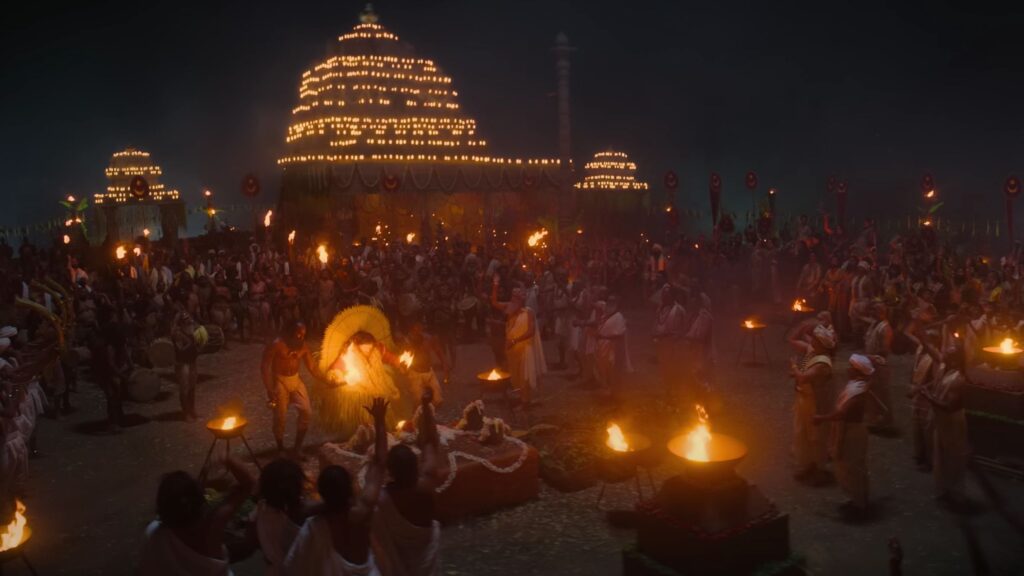
Credit first goes to Hombale Films, for their massive production scale and attention to detail. The investment is evident, and its global appeal and success are inevitable.
Rukmini Vasanth’s majestic presence, especially in scenes where she’s on the throne, shines brightly. Costume designer Pragathi Shetty deserves praise for elevating her look and the overall visual appeal of the film. Rukmini Vasanth is surely poised for national recognition after this standout performance. From Sapta Sagaradaache Ello to Kantara, her transformation into Kanakavathi is remarkable. Gulshan Devaiah as Kulashekhara delivers a silent roar through his intense and agile performance. Supporting roles by Bala Rajawadi, Pramod Shetty, the mother of Berme, Rakesh Pujari, Prakash Tumminadu, P.D. Satish, and others enhance the film’s acting department significantly.

Aravind Kashyap’s cinematography is a visual feast. His shots, especially in the action and divine sequences, are spectacular. However, editing could have been slightly tighter in the first half. The stunt team – Arjun and team (Bulgarian Juni, Ram-Lakshman, and Mithun Mathew) – deliver action sequences on par with international standards. The special effects are particularly impressive and truly mind-blowing. Dharani’s art direction stands out – from constructing massive sets to demolishing them when needed. The chariot, in particular, is a visual treat. The music by B. Ajaneesh Lokanath – mostly in the background – is pleasing and fits perfectly with the mood. The lyrics are thoughtfully penned and enhance the narrative.
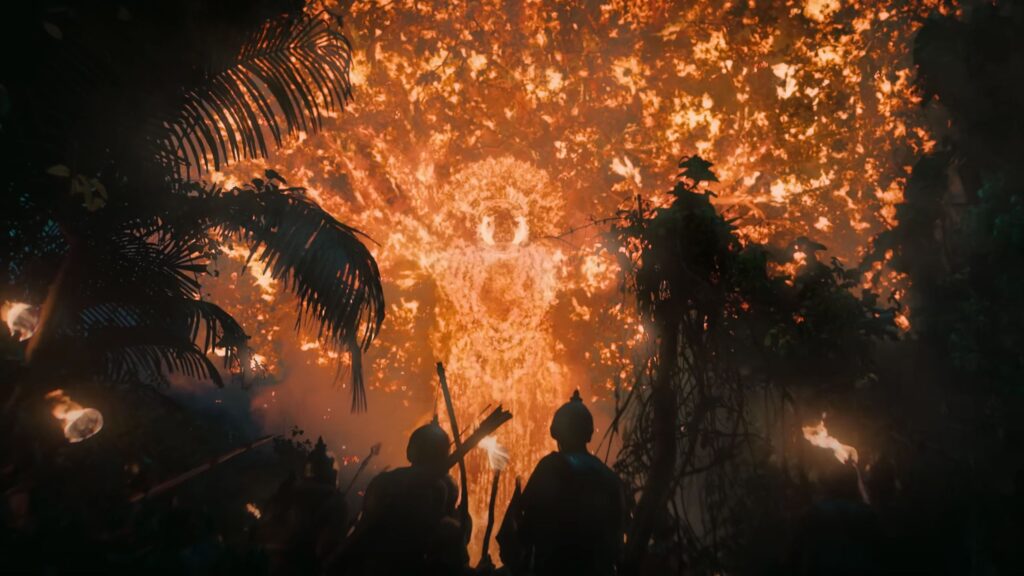
The writing team – Gautham S. (Raviyanna of Su from So) and Anirudh Mahesh – deserve credit for their research and for gathering insights from professors, scholars, and PhD authors. Their effort is an uphill task accomplished with excellence. We now eagerly wait for Kantara 2, Mr. Rishab Shetty and Hombale Films. Please – don’t take another three years to bring the next masterpiece to the silver screen!

